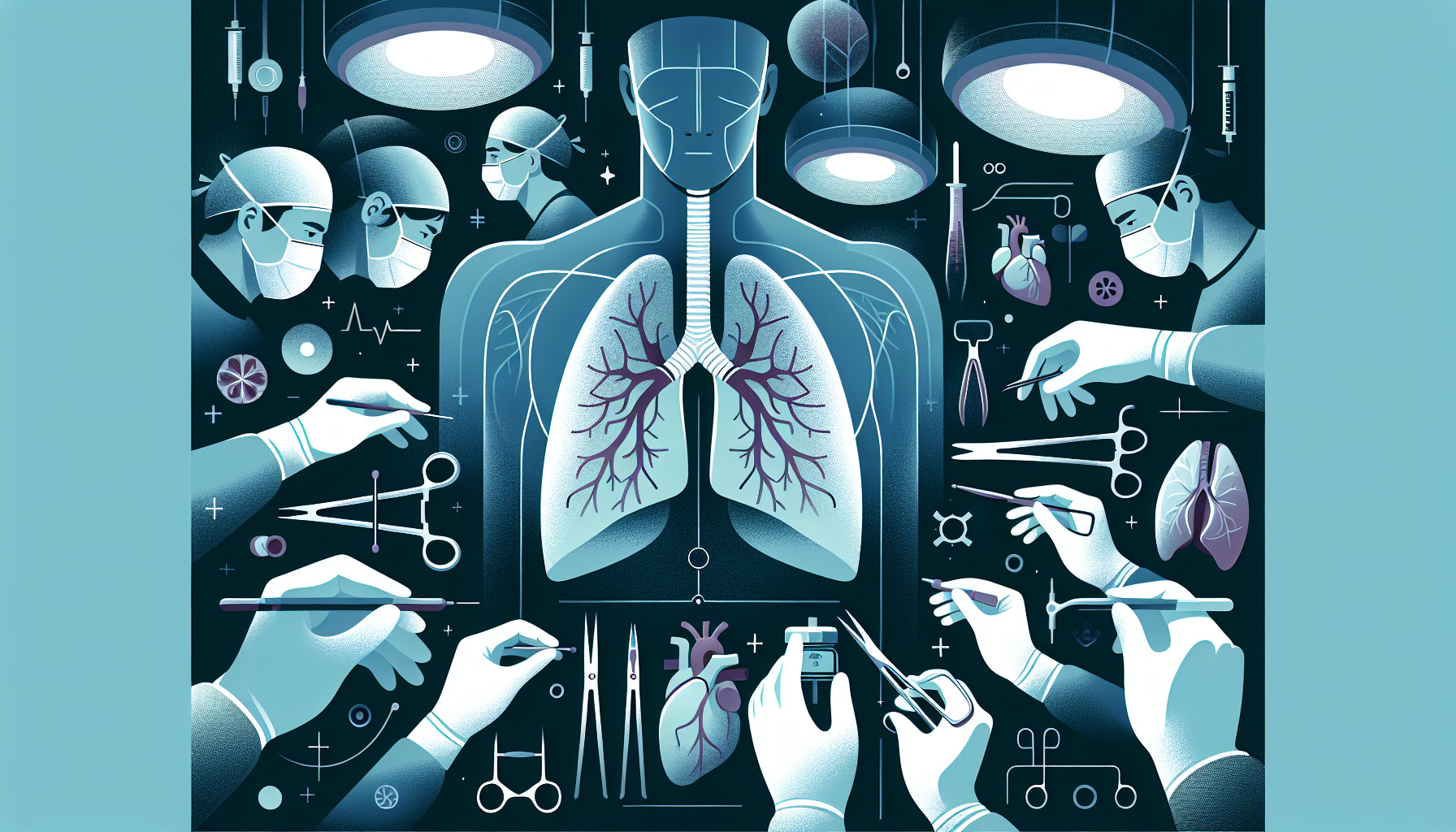Our Summary
This research paper appears to be about a study conducted in the field of clinical research and practice. The focus is on fungal infections and infectious diseases, specifically those that affect the intestines. It also discusses the topic of lung transplantation and pulmonology, which is the study of the respiratory system. The paper likely discusses how these infections can impact patients, especially those who have undergone lung transplants. It might also look into treatment options or methods to prevent these infections. However, without an abstract or more detailed information, it’s hard to provide a more specific summary.
FAQs
- What is the focus of the clinical research mentioned in the article?
- How does infectious disease relate to lung transplantation or pulmonology?
- What is the connection between intestinal disease and lung transplantation as mentioned in the article?
Doctor’s Tip
One important tip a doctor might give a patient about lung transplant is to strictly adhere to the prescribed medication regimen. This includes taking immunosuppressants to prevent rejection of the donor organ, as well as antibiotics to prevent infections. It is crucial for patients to closely follow their medication schedule and notify their medical team immediately if they experience any side effects or symptoms of infection. Consistent medication adherence is essential for the long-term success of a lung transplant.
Suitable For
Patients who are recommended for lung transplant typically have end-stage lung disease that cannot be effectively treated with other medical interventions. Some common reasons for recommending a lung transplant include:
- Chronic obstructive pulmonary disease (COPD)
- Cystic fibrosis
- Idiopathic pulmonary fibrosis
- Pulmonary hypertension
- Sarcoidosis
- Alpha-1 antitrypsin deficiency
- Bronchiectasis
Additionally, patients who have severe lung damage from conditions such as severe pneumonia, bronchiolitis obliterans syndrome, or interstitial lung disease may also be considered for a lung transplant. The decision to recommend a lung transplant is typically made by a multidisciplinary team of specialists, including pulmonologists, transplant surgeons, social workers, and psychologists, who evaluate the patient’s overall health and prognosis.
Timeline
Before lung transplant:
- Patient undergoes extensive evaluation to determine if they are a suitable candidate for transplant
- Patient is placed on a waiting list for a suitable donor organ
- Patient may experience worsening symptoms and declining lung function
- Patient may require supplemental oxygen and frequent hospitalizations
After lung transplant:
- Patient undergoes surgery to receive new lung(s)
- Patient is closely monitored in the intensive care unit post-surgery
- Patient may experience complications such as rejection or infection
- Patient undergoes rehabilitation to regain strength and lung function
- Patient must take immunosuppressant medications for the rest of their life to prevent rejection
- Patient is monitored closely by their medical team for any signs of complications or rejection.
What to Ask Your Doctor
- Am I a candidate for a lung transplant?
- What are the potential risks and complications associated with a lung transplant?
- How long is the recovery process after a lung transplant?
- What medications will I need to take after the transplant?
- How will the transplant affect my overall quality of life?
- What is the success rate of lung transplants at this hospital?
- How long can I expect a transplanted lung to last?
- What lifestyle changes will I need to make after the transplant?
- How will the transplant impact my ability to exercise and participate in physical activities?
- What are the signs of rejection I should watch for after the transplant?
Reference
Authors: Sivasailam B, Rudym D, Latorre M, Mehta SA. Journal: Am J Transplant. 2022 Apr;22(4):1272-1274. doi: 10.1111/ajt.16972. PMID: 35373524
